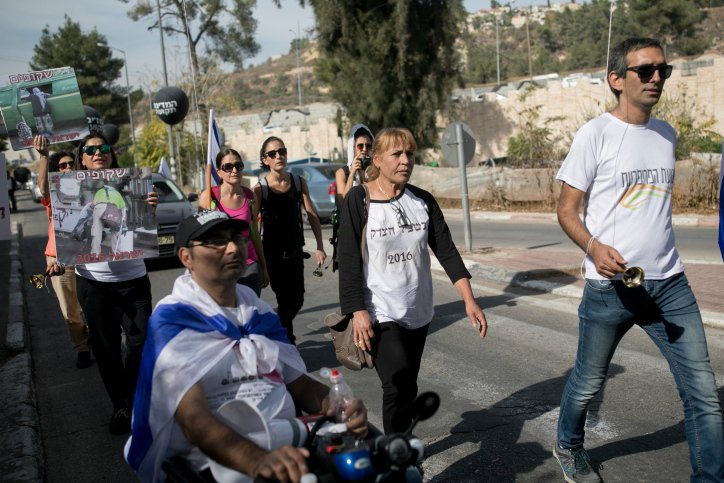Netflix recently released a fascinating film entitled The Trial of the Chicago 7. Set during the politically tumultuous period of the late 1960s in the US, the drama depicts the Chicago Seven, a group of anti-Vietnam protestors who faced trial after being accused of conspiracy and crossing state lines with the intention of inciting riots at the 1968 Democratic National Convention in Chicago.
Despite the riveting historical account of one of the most famous trials in US history, the fact that three of the seven were Jews—Abbie Hoffman, Jerry Rubin and Lee Weiner—is rather intriguing. Interestingly, Jewish participation in causes of social justice has always been quite prominent throughout history. Many Jews, albeit constituting a small fraction of the world’s population, have consistently been on the frontlines of major social movements in the US and around the world.
The Jewish community was a major partner in the civil rights movement in the 1960s. Just one of many examples, distinguished Rabbi Abraham Joshua Heschel marched side by side with Martin Luther King Jr. in Selma in 1965, linking arms with black and white marchers. As the Chicago Seven illustrate, Jews also filled the ranks of anti-Vietnam War protests throughout the US.
If we look across the Atlantic outside of the US, we find that Jews in other locales have also advocated for issues of social justice. Jews were highly active in the socialist revolution in Russia in 1917, often viewing it as a hope for gaining equality for the persecuted minorities, especially Jews.
Zionism was also understood by its founders as a social cause for improving the unjust state of the Jewish people, from being a persecuted minority in many countries, to becoming a majority population in their own homeland. Even if you look at Israel today, it has a rich and compassionate civil society.
Why is Jewish activism in struggles for social justice so prominent?
I think the answer is two-fold, deriving from interwoven Jewish values and tradition together with the historical Jewish experience.
Judaism is filled with values and commandments that demand the pursuit of justice. One of the most well-known verses on the subject is found in Deuteronomy 16:20 commanding, “Justice, justice you shall pursue that you may thrive and occupy the land that the Lord your God is giving you.” The prophet Micah (6:8) tells us further, “And what does the Lord require of you but to do justice and to love mercy and to walk humbly with your God?” The value of justice is deeply engrained in Jewish sources, which have been fervently studied regularly for generations.
Another important value integral to Judaism is Tikkun Olam or “repairing the world” in English. Tikkun Olam is a concept that is identified with many Jewish circles and has come to connote social activism and justice. It is a common theme and motivation for Jewish organizations engaging in social change. Thus, social justice is not just a nice idea on the margins of Judaism but rather sits at the forefront of Jewish values.
The Jewish experience in history is also important for understanding widespread Jewish involvement in matters of social justice.
Jewish history is full of suffering. Starting from the Bible, there are several major historical events that illustrate the collective hardships for the Jewish people. In Exodus, the people of Israel lived in slavery for hundreds of years. When the First Temple was destroyed in 586 BC, the land was conquered, and the people were brutally killed and exiled. The story of Esther describes the Jewish people suffering under persecution in ancient Persia, in which a Hitler-like figure arose to a position of power, using it to threaten genocide against the Jewish community.
Examples of Jewish suffering do not end with the Bible but continue into modern history. Jews in Europe were afflicted with hundreds of years of Christian antisemitism. For centuries, Jews were not citizens, could only work in designated professions and were violently attacked in pogroms. European antisemitism culminated in the Holocaust, ending less than one hundred years ago.
This history of suffering is deeply embedded into Jewish collective memory. Because of this, Jewish people have always identified closely with those who are oppressed and suffering. It is a mechanism of being able to identify with the other and the ability to have empathy for them. Jews know what it’s like to be weak, to be oppressed and to suffer. A central part of the Jewish communal experience is being a minority. For the past 2,000 years, Jews have only constituted a majority population for 72 of them. That is, since the establishment of the State of Israel in 1948.
Of course, it is not enough to have a history of suffering in order to empathize and identify with those experiencing a similar fate. It must be collectively remembered and purposely reminded.
Every week, when welcoming in the Shabbat, Jews around the world are reminded of their suffering as slaves in Egypt. This is exactly what Jewish tradition does on a weekly, and even daily, basis. Every Friday night it is said, “His holy Shabbat has a heritage; in remembrance of the work of Creation; the first of the holy festivals, commemorating the Exodus from Egypt.”
During Purim, we are also reminded, “In the days of Mordechai and Esther, in Shushan, the capital, when Haman, the wicked, rose up against them, and sought to destroy, to slay, and to exterminate all the Jews, young and old, infants and women…and to plunder their possessions.”
As Jews, we are consistently reminded of our suffering and the injustices inflicted upon us.
Jewish tradition preserves this collective memory and subsequently teaches us that the answer is ‘Justice, justice you shall pursue’. The combination of the text, historical experience and tradition has permanently instilled the concept of social justice into the Jewish psyche. It is only natural then that so many Jews choose to pursue justice through social activism not only for themselves, but for the world.












